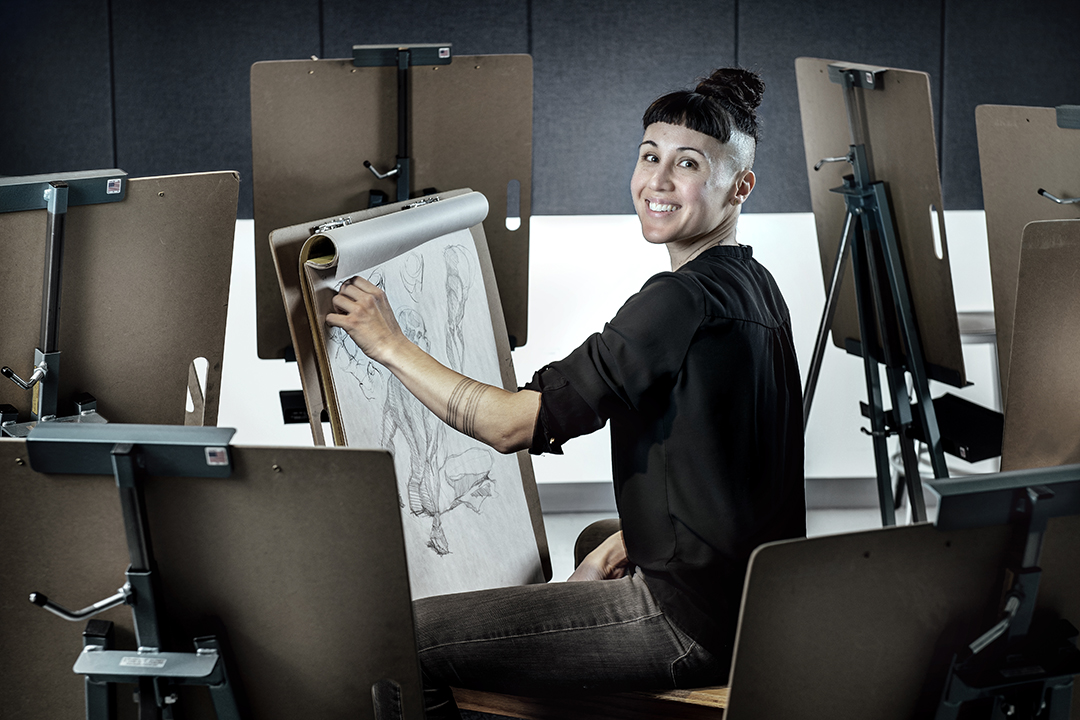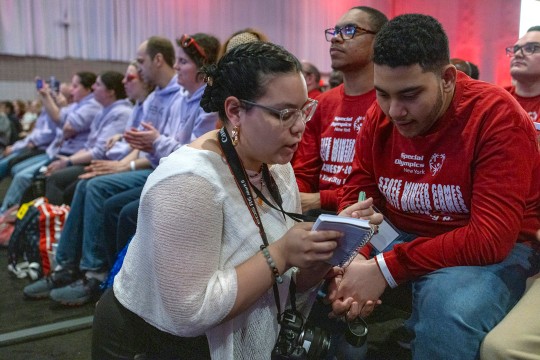Mari Jaye Blanchard receives Eisenhart Award for Outstanding Teaching
Associate professor receives award after eight years at RIT
Carlos Ortiz
Mari Jaye Blanchard, associate professor in RIT’s School of Film and Animation.
When Mari Jaye Blanchard hits the rock climbing gym, she describes the environment as a community supporting each other as they pursue their personal goals.
“I feel like teaching is similar to rock climbing in that way. People come into the classroom and have goals or something they want to accomplish, and I’m here to offer either encouragement or some of the tools and skills that might help them get there,” she said. “I’ve always been somebody that is excited to see other people reach their goals, both in and outside of the classroom.”
Blanchard’s supportive approach to teaching is part of what earned her a place among the recipients of the 2023 Eisenhart Award for Outstanding Teaching. Blanchard is an associate professor in RIT’s School of Film and Animation (SOFA) and has taught for RIT’s College of Art and Design for nearly eight years.
When she learned she received the award, her first thought was how proud she was of her students for being so engaged and driven in her classes. She shared that a successful classroom doesn’t solely hinge on a professor’s abilities, but also on the talent and curiosity of the students they serve.
“A huge part of my teaching style is to remind students that the classroom is for them. The more engaged they are and the more they tackle things, the more they can find themselves doing something completely unexpected or beyond what they thought they were capable of,” said Blanchard. “It’s important for me to create an environment where my students feel safe and supported, and then we dive in to do a lot of work so they can reach their full potential.”
Blanchard’s father inspires her to pursue excellence in teaching in a fairly unique way. She explained that her father has always hated the American education system and even encouraged her to look into alternative education when she was a young student. She has a letter he wrote hanging in her office as a reminder of him.
“He wrote a letter to my second grade teacher because I had been told in class that I could not write my name because the other children couldn’t write their names, and that I wasn’t allowed to draw a shamrock freehand because all the other students were tracing,” said Blanchard. “I didn’t realize what his real complaint was until way later on in life.”
While she may not agree with all of her dad’s opinions, he and the letter are a constant reminder that there is no one right way to do things and that there is value in personal exploration.
“There are times when I find myself being the teacher that I think my dad would write a letter of complaint to and I think to myself, ‘are you inadvertently putting people back in boxes and telling them that they cannot be creative?’” she said. “Being reminded that learning isn’t a dictatorship keeps me from ever feeling like I have all of the answers.”











